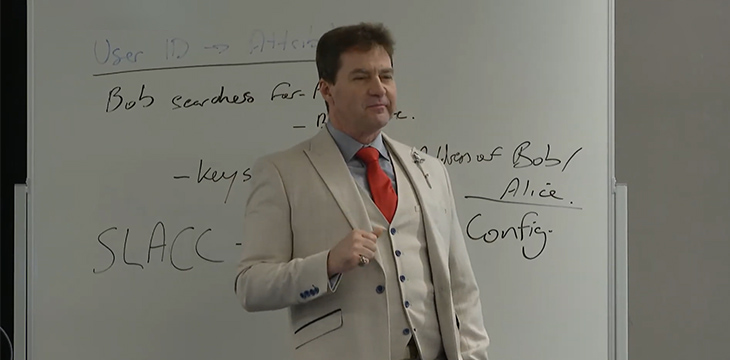|
Getting your Trinity Audio player ready...
|
Can you use the blockchain to build a better, more robust version of Twitter? Could we have better filesharing services than the central server-based ones we use now? The answer is: absolutely. In Session 5 of Dr. Craig Wright’s The Bitcoin Masterclasses Series 2, the nChain chief scientist describes how we could use IP2IP, IPv6 multicast and distributed hash tables to create new and improved models for sharing information.
The full video for The Bitcoin Masterclasses Series 2, Day 2, is available above. If you’d like to catch up on the previous sessions or get more background on using Multicast, Day 1 is also available for viewing on the CoinGeek channel.
Dr. Wright talks about the concepts of “cloud” and “fog” computing. Existing examples of both, he says, are usually run by corporations for corporate means. Their users might be decentralized, but most data is stored centrally on whichever corporation runs the service. What if there was a way to truly decentralize the network, ensuring all the information stayed available, to anyone who wanted it, without using Amazon (NASDAQ: AMZN), Microsoft (NASDAQ: MSFT), Google (NASDAQ: GOOGL), or any other company’s data center?
“There’s a reason why none of these corporations want to talk about this stuff,” he says. Storing everyone’s data is a vital part of them maintaining their control.
“You’ve got a concept here that’s based on both push and pull technology,” he added.
Most cloud services we use nowadays have a “pull” structure, while “push” has been neglected. With multicast, you have a service where you’re grabbing pieces of information when you’re connected from any group you might want to be part of. That doesn’t mean you’re missing out on anything, though—there could be a monitoring micro-service that “stays online” for you, to grab any information you missed while you were offline.
For an example of such a service, he refers back to the days of IRC, where users had to select a name (or “nick”) for every session. For people who wanted to maintain a consistent name/identity across different sessions, there were bot programs that could continuously run and maintain your name. (Trivia: this is where the term “chatbot” began to originate; when other users would attempt to chat to the bot program holding your nick. Sometimes they could be programmed to talk back, sometimes in very random ways.)
You can (theoretically) add as many nodes as you want, and this is a key element of “network resilience” mentioned in earlier sessions. However, there are diminishing returns from this, so when designing these systems, we have to think about how quickly we need information sent to different individuals and what information should be sent.
Storing and accessing information like this reduces the likelihood of having multiple versions of the same file stored on different central cloud servers, and also reduces the risk of data leakage (for example, having your private or confidential chat logs leaked). You’re also not “locked into” using one particular, account-based corporate service, as your data is more portable.
With distributed hash tables (DHT), we have something similar to a NoSQL database, but a table where individual files are represented by their hash. With double hashing, it’s possible to prove you have access to specific data without revealing it, similar to how zero-knowledge proofs (ZKP) work. He also talks about how all this information could/should be indexed to make it accessible and keep it private, searching by attributes.
Dr. Wright then notes that he’s researched these topics in depth for many years now and will publish his papers on nChain’s site for anyone interested in learning more.
“Cloud” applications could be more efficient and more secure, Dr. Wright says, but we need to start thinking about different structures and models. The BSV blockchain, together with IPv6 Multicast addresses, gives us one way to start imagining these new services. Don’t listen to large corporations who’d like you to think their data center-based services are essential… because they’re not.
Watch: The Bitcoin Masterclasses with Craig Wright – Confidentiality, Privacy, Anonymity, Party to Party

 03-02-2026
03-02-2026 




